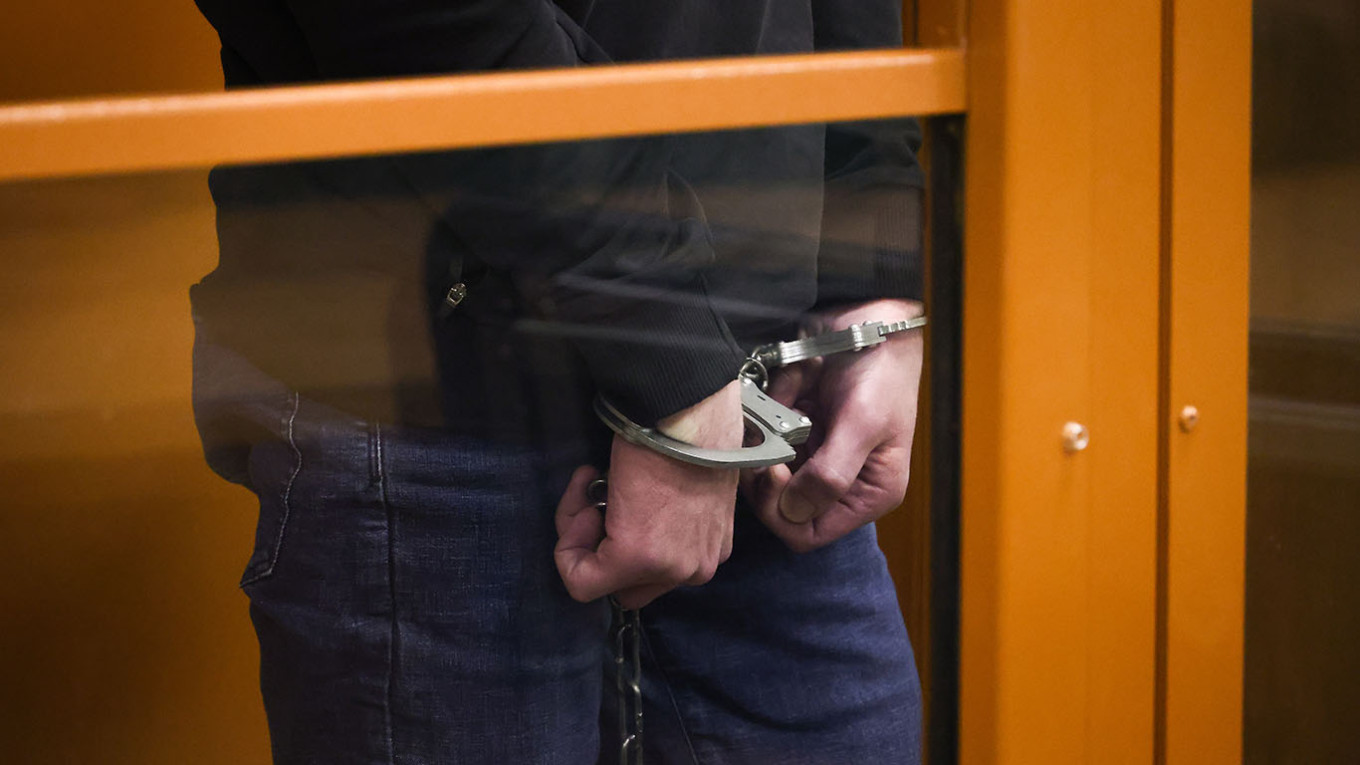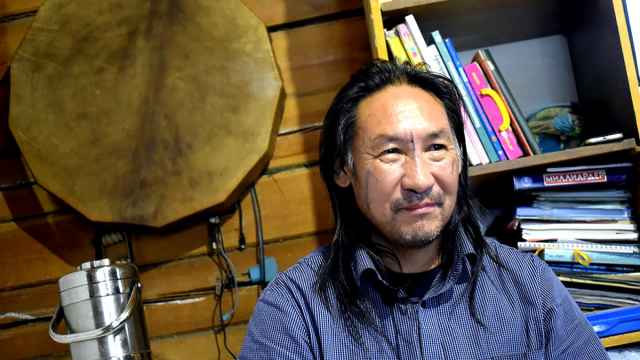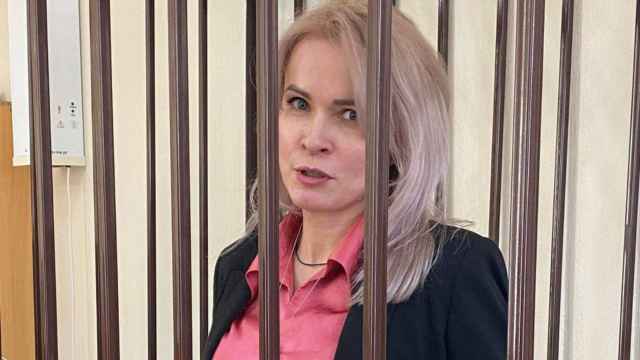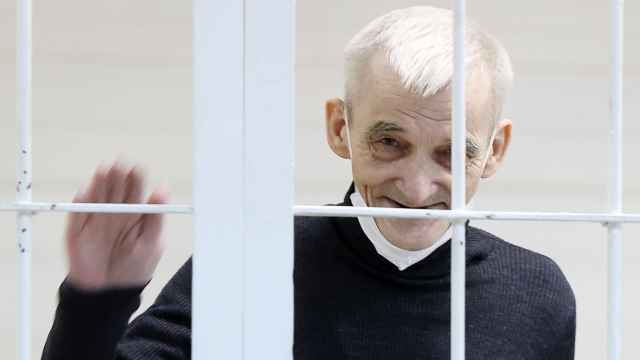Russian authorities have denied the existence of political prisoners for decades. Any arrests on political grounds have always been presented as a fight against extremism, terrorism, or threats to national security.
Even high-profile cases like Alexei Navalny and his associates were framed as catching criminals. Now, people who oppose Russia's war with Ukraine and are prosecuted for it are officially framed as criminals in the same manner.
However, something unprecedented has just happened. As part of the negotiations between Ukraine and Russia, both sides were shown memoranda outlining their visions for how to end the war and the subsequent security guarantees.
Most of what Russia wrote is completely divorced from reality. But what really surprised me was that it said in black and white that there should be an exchange of political prisoners between the two countries. Not only that, but Moscow made the first move in recognizing the existence of political prisoners on their territory and offering their inclusion in an exchange
But it must be understood that this recognition is not an act of humanity. It was strongarmed out of them because they need leverage, demonstrating that these people are a tool for the regime, not just victims of the repressive system. By using them as a bargaining chip, the Kremlin is now literally legalizing its own repressive policies on the international stage.
The label “political prisoner” includes those who found themselves behind bars after the outbreak of full-scale war: for participating in anti-war actions, publicly supporting Ukraine, donating to Ukrainian NGOs, among other things.
At the same time, it is obvious that Moscow will try to stretch the definition to include Ukrainian servicemen previously convicted of terrorism by Russian courts. Doing so is not just cynical — it is political manipulation. These people are not terrorists, but combatants who defended their country in an international armed conflict. The Kremlin would be deliberately using them to increase its leverage, inflating exchange lists with Ukrainian servicemen and leaving little room for anti-war figures.
In turn, one can assume Russia wants to retrieve from Ukrainian prisons as many people as possible who worked for administrations in occupied regions, participated in repressing locals, or helped the Russian army as saboteurs and spies. Perhaps this list will also include captured Russian soldiers who may be suspected of involvement in war crimes.
Personally, I doubt that Ukraine will agree to exchange such people without serious pressure. But the very phrasing of the question already speaks volumes. Moscow is using this potential exchange as a signal to its agents that they should not be afraid to carry out their subversive and violent actions because they will regain their freedom through an exchange.
Today, political prisoners in Russia are not only evidence of internal repression, but a geopolitical tool. This means that we are facing not just a humanitarian tragedy, but confirmation that the Russian authorities are weaponizing the suppression of dissent on the global stage.
The fact that Russia put the issue of the release of political prisoners on the negotiating agenda was a fundamentally new step. Prior to that, political prisoners in Russia had almost never been considered as subjects of international agreements. They were the subject of human rights concerns, but not of diplomatic pressure.
A major exchange deal in August 2024 saw Russian political prisoners Ilya Yashin, Vladimir Kara-Murza, Oleg Orlov and Andrei Pivovarov released, among others. The successful execution of this exchange set a precedent that presented Moscow with a choice over whether to recognize them in the future for diplomatic advantages or to continue denying their existence.
Experiencing both an internal and external diplomatic crisis, the Kremlin chose the first option, thus effectively legalizing the concept of “political prisoner.” Thus, the war against Ukraine not only turbo-charged the repressive policy inside Russia but also, paradoxically, contributed to the international recognition of its victims.
If dissidents in Russia now and in the future are only bargaining chips, there is a risk that freeing them will come at the expense of strengthening the very system that produced them. On the one hand, the U.S. State Department, the European Commission, along with the leaders of Germany and France, welcomed the return of political prisoners in August 2024.
But on the other hand, human rights organizations warned of the risk of normalizing such practices. Amnesty International warned that the “exchange is not a substitute for justice” and risks “creating a fund of detainees for subsequent negotiations" that "violates the principles of individual rights and fair trial.” Thus, even the desirable release of prisoners could be used to prop up the repressive system itself.
But this does not mean that we should stop working for the freedom of political prisoners. We need a comprehensive approach to avoid falling into the trap that the Kremlin has prepared for the West.
If the existence of political prisoners is recognized, then in my opinion, this opens up several strategic opportunities.
The concept of “political prisoner” should be introduced into the international legal discourse on Russia. Until 2024, the term was used mainly by NGOs. Now, it can be enshrined in resolutions of the European Parliament, the UN General Assembly and other international bodies. These same governments should also use the threat of sanctions to push for the release of unjustly imprisoned people who do not have the same global profiles as Navalny and Kara-Murza.
International legal assistance should be provided to families of prisoners and their defense. NGOs and diaspora organizations can play a key role in providing lawyers and publicizing campaigns. Efforts by groups like Memorial to track the status of political prisoners would also be supported and formalized.
The Kremlin's recognition of political prisoners was not an act of magnanimity. It was a forced, pragmatic and cynical step dictated by diplomatic realities and international pressure.
Nevertheless, I am convinced that this recognition opens up new opportunities. For a step-by-step structured pressure on the regime to release all political prisoners. To transform the perception of justice in Russia in the international arena. We can not waste the opportunity that the Kremlin has provided us to secure the release of the hundreds of political prisoners held in Russia.
A Message from The Moscow Times:
Dear readers,
We are facing unprecedented challenges. Russia's Prosecutor General's Office has designated The Moscow Times as an "undesirable" organization, criminalizing our work and putting our staff at risk of prosecution. This follows our earlier unjust labeling as a "foreign agent."
These actions are direct attempts to silence independent journalism in Russia. The authorities claim our work "discredits the decisions of the Russian leadership." We see things differently: we strive to provide accurate, unbiased reporting on Russia.
We, the journalists of The Moscow Times, refuse to be silenced. But to continue our work, we need your help.
Your support, no matter how small, makes a world of difference. If you can, please support us monthly starting from just $2. It's quick to set up, and every contribution makes a significant impact.
By supporting The Moscow Times, you're defending open, independent journalism in the face of repression. Thank you for standing with us.
Remind me later.








